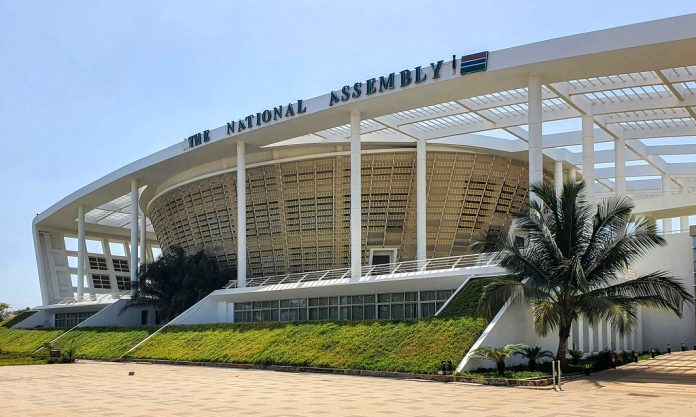By Kebba AF Touray
A joint parliamentary committee tasked with probing the controversial importation of petroleum products into The Gambia met behind closed doors on Wednesday to assess the progress of its ongoing investigation. The internal session, scheduled as part of the National Assembly’s approved legislative agenda for April, brings together members of the Finance and Public Accounts Committee (FPAC) and the Public Enterprises Committee (PEC).
Co-chaired by Hon. Alhagie S. Darboe and Hon. Lamin J. Sanneh, the joint committee is reviewing developments in its inquiry into what has come to be known as the “Russian Oil Saga”—a reference to the mysterious arrival of petroleum cargoes valued at approximately $30 million (over D2 billion) that docked off Gambian shores in 2023.
The inquiry was launched after Hon. Samba Jallow, member for Niamina Dankunku, raised a question on the floor of the National Assembly concerning the destination and handling of 36,935 metric tons of petroleum product. The lawmaker requested Energy Minister Nani Juwara to provide details on where the fuel was offloaded, stored, and how it was sold.
In response, Minister Juwara disclosed that Gam-Petroleum, the national fuel depot, received shipments of gasoil (diesel) from a series of tanker vessels beginning in May 2023. The shipments were delivered under the name of a company called Apogee and included three separate consignments: 14,338 metric tons from MT Pericus, 9,485 metric tons from MT Bruno, and 5,646 metric tons from MT Baldo—totaling 29,473 metric tons of diesel, slightly below the amount cited in Jallow’s original question.
The disclosure raised further questions, particularly from Hon. Sainey Jawara of Lower Saloum, who cited a written report from the Public Utilities Regulatory Authority (PURA) alleging potential misuse of the fuel. Jawara pressed the minister on whether he was aware of any illegal activities surrounding the imported petroleum, especially as the licenses for importation had been granted to companies not traditionally involved in oil trading.
Minister Juwara confirmed that two Gambia-registered companies had indeed obtained permits for petroleum importation, noting that their financial records had been submitted to PURA as part of the regulatory process.
Following this exchange, Jawara tabled a motion to establish a formal parliamentary inquiry. The National Assembly adopted the motion, assigning the joint committee to investigate the matter and report its findings to lawmakers.
Since the start of the probe, the committee has interviewed key institutions, including Gam-Petroleum, the Financial Intelligence Unit, and the Central Bank of The Gambia. However, the committee was unable to present its final report during the Assembly’s recently concluded ordinary session, citing the need for additional time to complete its investigation.
The joint committee’s internal review yesterday marked a significant step in the inquiry process. While no public statements are expected immediately, the outcome of the session could shape the timeline for when the committee’s findings are ultimately laid before the full Assembly.
The petroleum inquiry has become one of the more high-profile oversight efforts in recent parliamentary history, as questions around transparency, regulatory oversight, and the integrity of fuel supply chains continue to swirl.




















